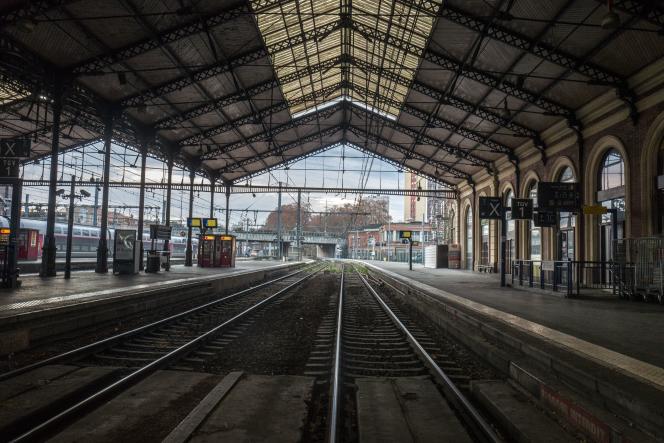The strike of SNCF employees should disrupt, on Wednesday July 6, the departure on summer vacation for many travelers, while the rail is preparing to experience a record summer after two years marked by the Covid-19 pandemic.
This social movement, organized by the CGT, UNSA, SUD-Rail and CFDT unions, was anticipated by the transport giant. All customers whose journeys have been canceled have normally been notified by SMS, SNCF Voyageurs said on Tuesday. The carrier offered train changes, but also encouraged users to stay in telework or postpone their trip.
Three out of four TGVs should circulate on average on the territory. However, some lines will be more affected than others: On the East axis, only three out of five TGVs should run, a less alarming situation on the North and Atlantic axes which could benefit from a weakly impacted operation with three trains out of four insured. It is better on the South-East axis with four out of five trains in circulation, indicated SNCF Voyageurs.
The Ouigo branch will be hit harder, only two out of three trains should be maintained.
Regarding intercity trains, intended to travel long lines, one in three trains should be in operation on average, and several major lines will be at a standstill: Nantes-Bordeaux, Nantes-Lyon or Toulouse-Hendaye. Night trains are cancelled, with the exception of Paris-Nice.
The TER network provides only two trains out of five insured. In Ile-de-France, the circulation of Transiliens should be very disrupted. The SNCF plans one in two trains on lines B, C, D, E of the RER, and on lines J, L, N, R, U of the Transilien.
Finally the international network (Eurostar, Thalys, Lyria), should be “almost normal”.
The CEO of the SNCF Jean-Pierre Farandou had estimated, at the end of June, that the departures on vacation were “not threatened” despite this call to strike, assuring that the wages of the railway workers would be increased.
“We put the subjects on the table, we try to build a balance, because increasing wages is one thing, but there is also an economic issue: it costs and we have to pay attention to the impact on the price of tickets for example, had added Mr. Farandou on Public Senate. At the end of the year, the company must remain balanced so as not to cost the country. “According to the unions, wages at the SNCF have not been revalued since 2014. “Between the opening to competition and eight years of wage freeze, everyone wonders what sauce it will be eaten”, had underlined, at the end of June, Fabien Dumas, federal secretary SUD-Rail.
SNCF management has planned a round table with the social partners on Wednesday.
These holiday departures have already been disrupted since the end of June by strikes by employees and subcontractors of Aéroport de Paris, firefighters from Paris-Charles-de-Gaulle, easyJet and Ryanair, in particular, causing the cancellation of several hundred flights.

















